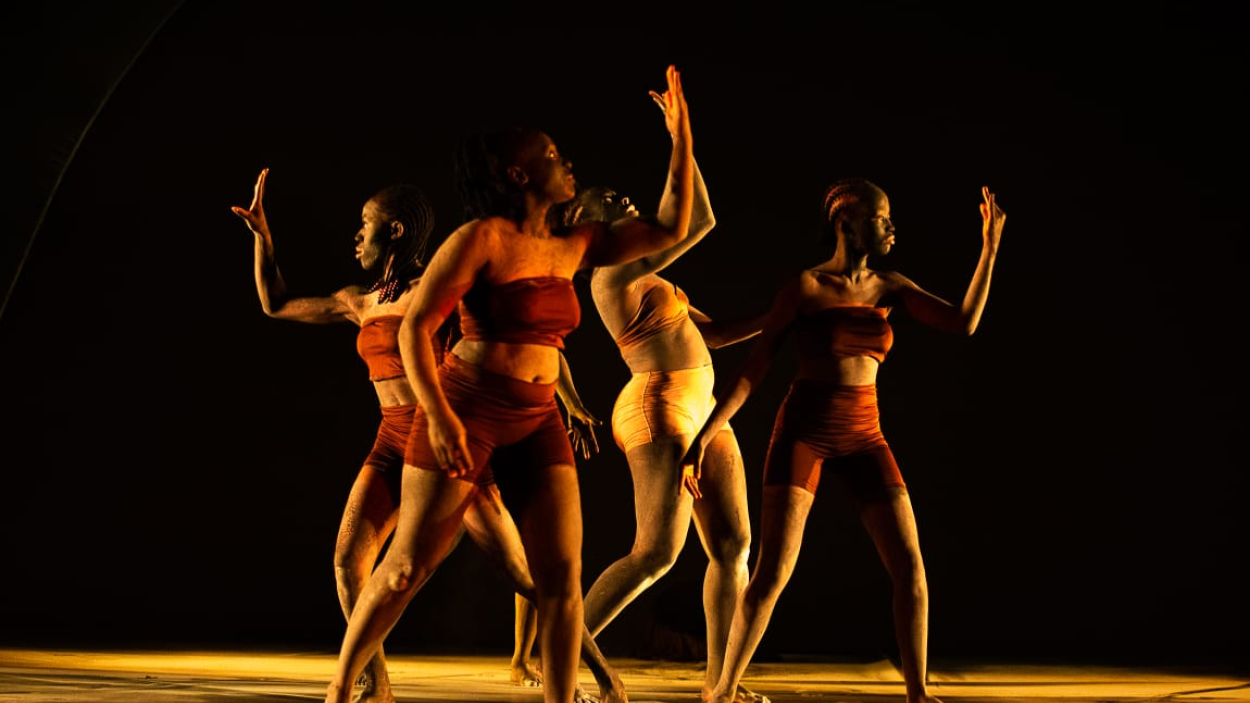ART REVIEW: Rwanda’s Creative Economy Soars with Inspiration from ‘Ubumuntu Festival’

Uganda's Writer, Director and Performer Philip Luswata during this year's Ubumuntu Arts Festival in Kigali, Rwanda (PHOTO/ Courtesy)
Artists from all corners of the globe gathered in Rwanda this week, a testament to the Ubumuntu Arts Festival's universal appeal and mission to redefine humanity's essence.
Ubumuntu Arts Festival, born a decade ago from a belief in the power of art to unite humanity, continues to inspire. This year's theme, “Integrity: Resilience in the Face of Adversity,” is a tribute to the enduring spirit of the festival's founders and their mission to foster unity through art, attracting over 30 countries in representation, with 50 performances running over ten days.
The word Ubumuntu can be defined as “Being Human.” Naming it ‘Ubumuntu’ creates an avenue where people from different walks of life can come together and speak to each other using the language of art.
Ubumuntu Arts Festival is the brainchild of Hope Azeda, a significant figure in contemporary Rwandan arts and theatre space. Azeda is also the founder of Mashirika Performing Arts and Media Company – a leading theatre company in Rwanda. The Ubumuntu journey started 10 years ago, when Azeda submitted its idea to the Africa Leadership Project as her leadership project proposal.
“Empathy is the key to better results. It's a great tool in the creative spaces for artists, especially when dealing with memory or remembrance,” Azeda says.
“Our festival confronts global topics without fear, such as police brutality, the refugee crisis, and gender violence. Above all, we encourage communities to fight hatred, dogmatism, and toxic ideas, all behaviours that precede deadly violence. Now, our mission is gradually unfolding into reality,” she adds.
As the founder and curator of Ubumuntu, Azeda envisions using the arts to help societies around the world cope with their traumas and connect with the international community.
Azeda, a refugee, spent much of her upbringing in Uganda before returning to Rwanda in 1998, where she became a celebrated leader of the country’s arts sector. She has previously served as the Director of Civic Education of the National Unity Reconciliation Commissioner. Azeda is also a John P. McNulty Prize Laureate, awarded by the Aspen Institute and the McNulty Foundation.
The festival, held annually following the last week of the 100-day commemoration of the 1994 Genocide Against the Tutsi, offers a diverse range of activities. These include performances, workshops, panels, and visits to genocide memorial sites. While access to festival venues is free and open to all, it relies on donations and sponsors for financial support.
Rwanda's government is optimistic about the festival’s ability to promote the country’s policy on managing and boosting the country’s creative economy. This year’s edition is expected to attract at least 13,000 revellers by the time it closes shop on the 28th of July, 2024, connecting local and global audiences through curated theatre, contemporary dance, and music performances from Rwanda, Uganda, Pakistan, USA, UK, DRC, South Africa, Burundi and many others via live YouTube streaming to global audiences.
CONNECT WITH US:
Twitter/ X: @Afro_Insights
Instagram: @bizinsightsafrica


